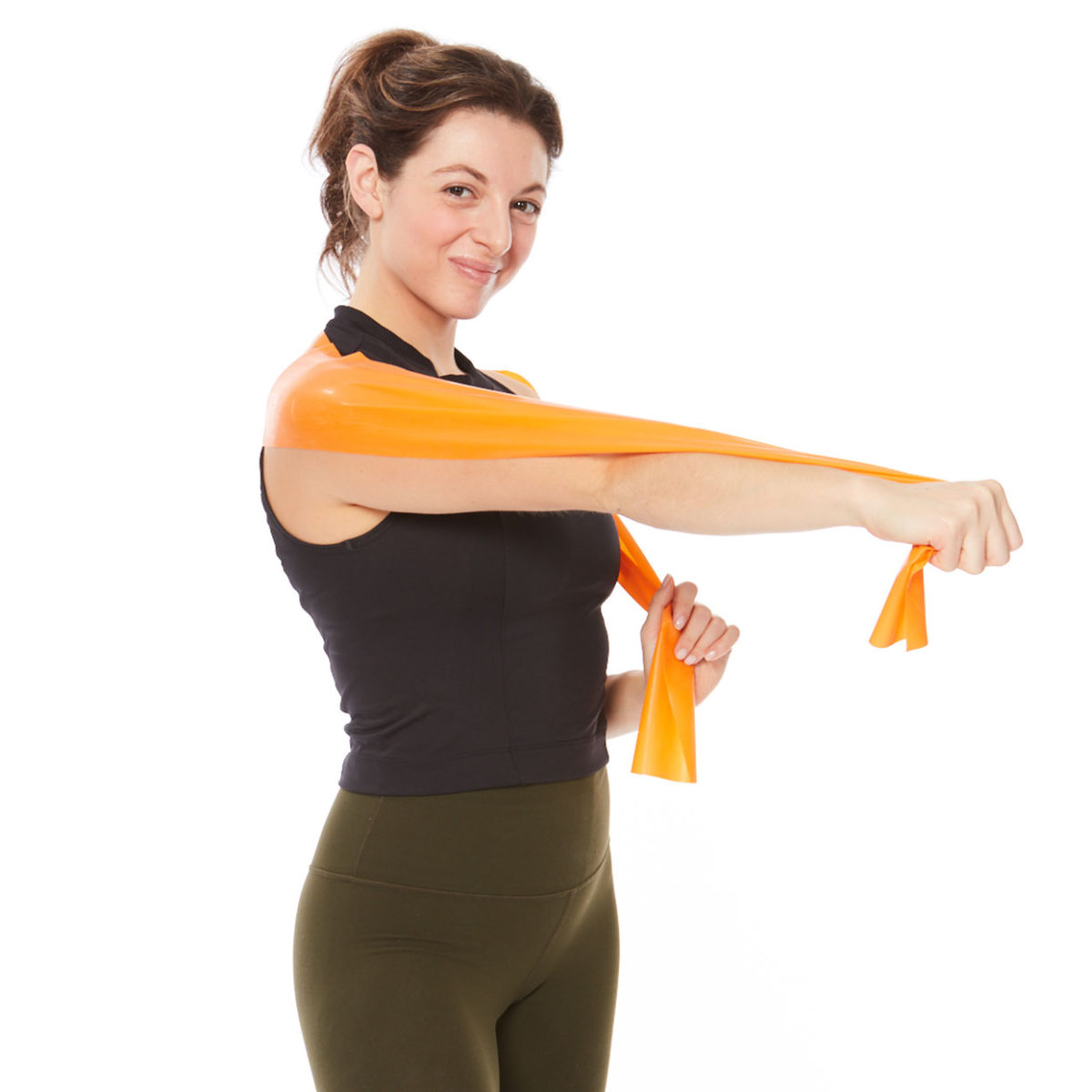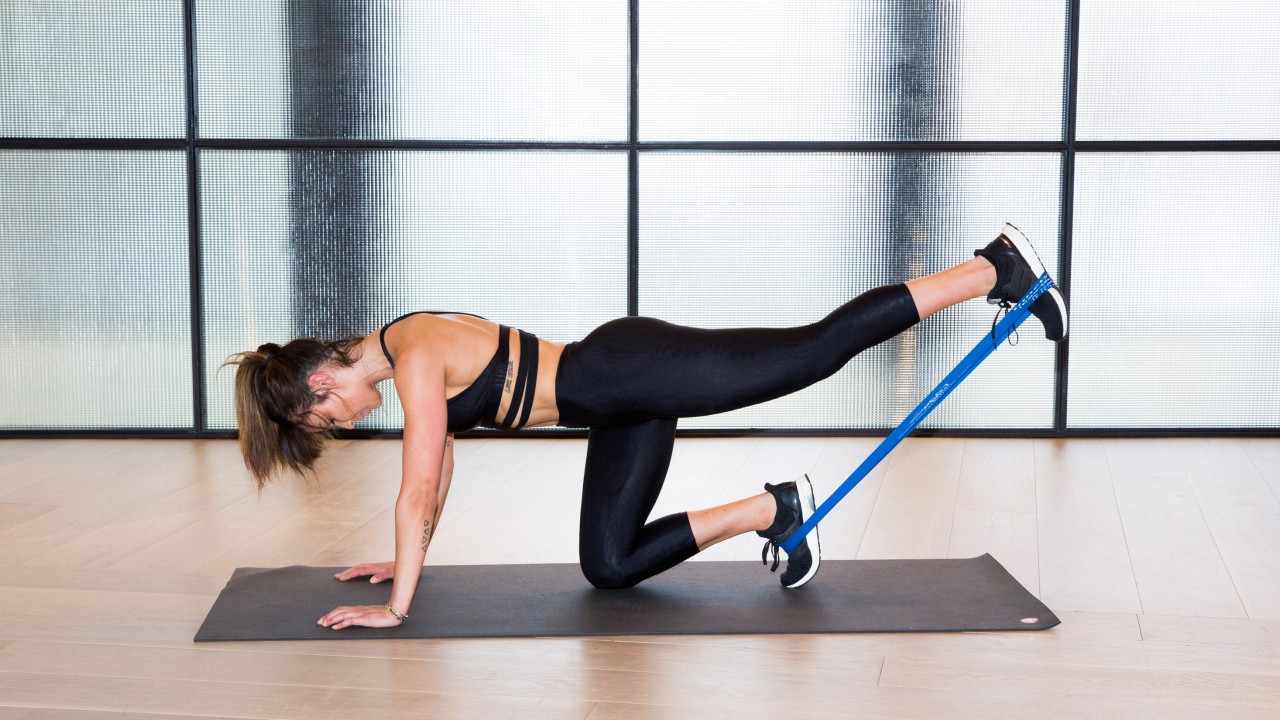Who doesn’t dream of toned legs and a sculpted butt? A body that looks great in jeans or a swimsuit is pretty high on everyone’s fitness goals. But how can you achieve the Adonis-thighs of your dreams? Resistance bands are a quality tool to help you shape and sculpt your lower body just as efficiently as they can help you tone your upper body.
No need to carry around bulky weights or run in the pouring rain; get gorgeous legs from home with a simple resistance band.

How to tone legs
Excess fat on the legs and butt will make your lower body appear soft and jiggly no matter how much muscle you have underneath. To achieve toned, sculpted legs, you need to reduce this layer of fat and build muscles.
Cardio is a really effective way to reduce fat, particularly on the legs, so cycling to work, running, jogging, swimming, and even power walking can work wonders to help you achieve the toned legs you’ve been dreaming of. If you can’t get outside, use the cardio machines in your gym to burn the fat and stimulate your legs.
But burning fat is still only half the battle. You also need to build the muscles beneath the fat to achieve your fitness (and appearance goals). To do this, you’ll need to utilize strength training in the lower body.
Benefits of resistance bands
As with anything, resistance bands come with their own pros and cons. Some of these are specific to leg toning, while others are more general yet still vital.
- Resistance bands are versatile. The same band can work multiple muscles in the upper and lower body, so you don’t need a specific band for each activity. They also usually come in sets of different intensity levels to help you get your perfect workout.
- Resistance bands are inexpensive. Compared to weights, resistance bands are an incredible and inexpensive piece of kit. In fact, you can usually buy a whole set of bands for less than the cost of 1 pair of heavy dumbbells.
- Resistance bands are portable. Obviously, you’re not going to want to bring a set of heavy weights on a business trip or carry them around with you. Resistance bands are usually made from cotton, latex, or rubber, so they’re incredibly lightweight. They can also be folded or scrunched up to fit in a purse or even a large pocket!
- Resistance bands are not reliant on gravity. Strength training with resistance vs. weight allows you to complete a broader range of exercises to train various muscle groups.
- Resistance bands are safe. Unlike weights, you’re unlikely to need a spotter even when working with high-difficulty resistance bands.
- Resistance bands work the joints. By forcing you to move with better form and move, resistance bands are especially useful for people with knee pain or arthritis as they strengthen the muscles around the joint.
- Resistance bands help balance. Many resistance band leg workouts involve moving and/or standing on one leg for periods of time, improving balance and strength.
Resistance Band Exercises for Toned Legs

Work your legs and butt for a toned and sculpted physique in no time with these resistance band exercises for the lower body.
1. Jump Squats
- Place a hip circle band (like this one from Victorem) around the lower part of your thigh, just above the knees.
- Stand with your feet slightly wider than hip-distance and keep your toes pointing forwards.
- Bend your knees 90-degrees to come into your squat.
- Jump to transition from squat to standing.
- Lower back down and repeat 3 sets of 10 reps.
2. Leg Extension
- Place a looped resistance band around your right ankle and the arch of the left foot.
- Step your left foot back until the band goes taut.
- Bend your knee slightly and engage your core as your upper body leans forward.
- Keeping the back leg straight, press the foot back and up. Hold above the floor for 1 second.
- Slowly lower your foot to the floor for a count of 3 seconds.
- Complete 15 reps, then swap to the other side.
3. Squat Side Steps
- Wrap your resistance band around both ankles, standing with feet slightly wider than hip-distance apart.
- Bend your knees to come into a half-squat and engage your core.
- Step your right foot forward and slightly to the right (think 3 o’clock)
- Bring your left foot forward to meet the right, maintaining a tautness in the resistance band.
- Step the left foot forward and to the left (think 9 o’clock)
- Bring the right foot forward to meet the left.
- Stay low in your squat and maintain resistance in the band as you step forward. You can also go backward if space is tight!
Final thoughts
While resistance bands might not substitute for free weight workouts, they are incredibly convenient and useful pieces of exercise equipment that can help you tone your legs and sculpt your butt. Complete these exercises with plenty of cardio to achieve your dream body in no time.
Disclaimer
The Content is not intended to be a substitute for professional medical advice, diagnosis, or treatment. Always seek the advice of your physician or other qualified health provider with any questions you may have regarding a medical condition.
